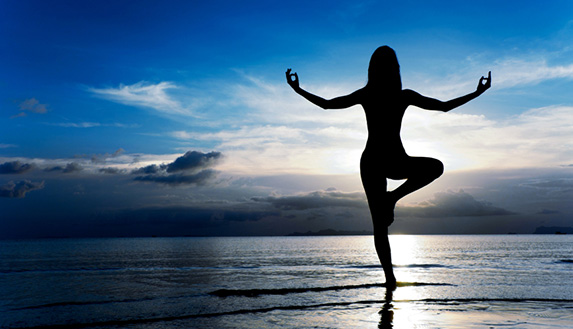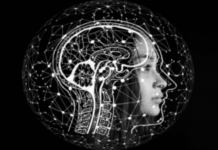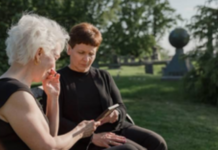PROVIDENCE, RI–Yoga is an ancient practice known to improve mental, spiritual and physical well-being among its practitioners. But can it also help a brain in slow decline?
Rhode Island Hospital researchers are studying whether regular practice of yoga or learning healthy living strategies can improve cognitive conditions among people diagnosed with mild cognitive impairment, the hospital said in a statement.

Led by Geoffrey Tremont, director of neuropsychology at Rhode Island Hospital, the study will direct patients through a 12-week, twice-weekly yoga regimen. He hopes to enroll 70 patients in the study: Half will be randomly assigned to yoga classes and half will take health education classes. All of the study participants should be new to yoga.
The yoga program involves meditation, physical postures, breathing exercises and relaxation. The healthy living program offers educational materials, lectures, and interactive sessions about lifestyle changes that are important to aging and mild cognitive impairment.
“There is reason to believe that adopting a healthy lifestyle could reduce risk of cognitive decline,” said Tremont. “Yoga has benefits for a variety of medical and psychiatric conditions and is equivalent to aerobic exercise in its effects on heart health, which could lead to better functioning for people with mild cognitive impairment.”

The 60-minute Vinyasa yoga classes will be led by certified instructors and health classes will be taught by a PhD-level neuropsychologist. Both the yoga and health classes are free for participants, who will be compensated for participating in pre-intervention and post-intervention assessments.
The study is supported by a grant from the Alzheimer’s Association.
Hindu statesman Rajan Zed said in a statement that although introduced and nourished by Hinduism, yoga was a world heritage and liberation powerhouse to be utilized by all. According to Patanjali who codified it in Yoga Sutra, yoga was a methodical effort to attain perfection, through the control of the different elements of human nature, physical and psychical.
Yoga, referred as “a living fossil”, was a mental and physical discipline, for everybody to share and benefit from, whose traces went back to around 2,000 BCE to Indus Valley civilization, Zed, who is President of Universal Society of Hinduism, pointed out.
According to US National Institutes of Health, yoga may help one to feel more relaxed, be more flexible, improve posture, breathe deeply, and get rid of stress. According to a recently released “2016 Yoga in America Study: about 37 million Americans now practice yoga; and yoga is strongly correlated with having a positive self-image.














